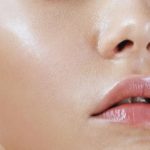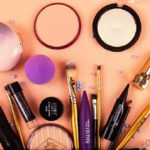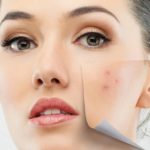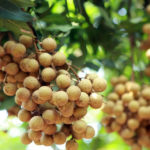Some ingredients in skincare products can aggravate your acne-prone skin. Let’s take a look at some ingredients to avoid and some tips to care for your acne-prone skin in the article below!
1 Ingredients to Avoid for Acne-Prone Skin
Mineral Oil
Mineral oil is a common ingredient found in cosmetics. It helps prevent moisture loss in the skin effectively. However, it is one of the causes of clogged pores, leading to increased acne formation.
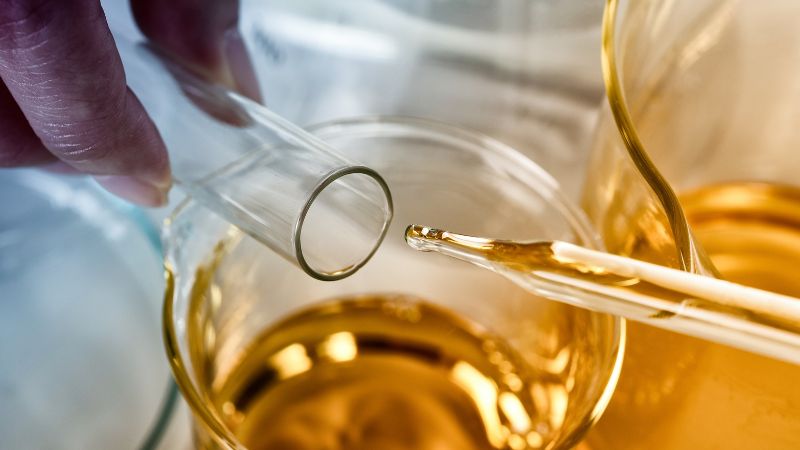 Mineral Oil
Mineral Oil
Alcohol
Alcohol in some cosmetics has a hydrating effect on the skin and helps remove dirt and excess oil. However, certain types of alcohol can strip the skin of its natural moisture. This prompts the skin to produce more sebum to compensate for the loss, which can lead to acne if the sebum production is excessive.
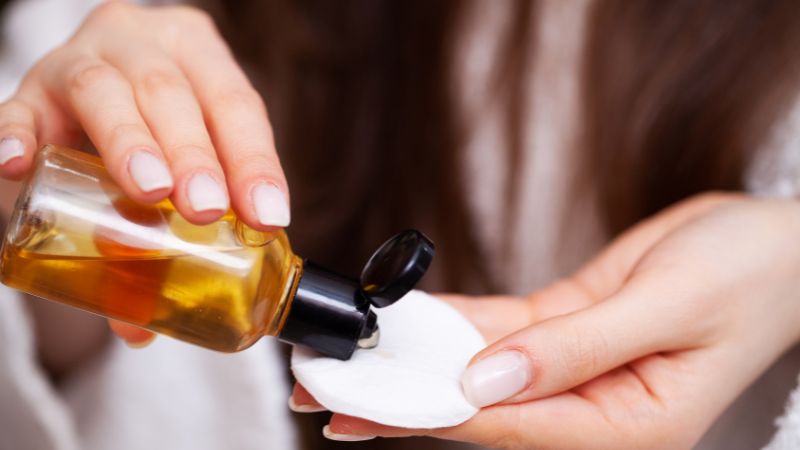 Alcohol
Alcohol
Natural Oils
You may be surprised to know that natural oils, often considered gentle and safe, can cause acne. In fact, commonly used natural oils like olive oil, coconut oil, and palm oil contain high levels of oleic acid. This fatty acid can cling to the skin’s surface, clogging pores and leading to acne breakouts.
If you have acne-prone skin, opt for products with natural oils containing linoleic acid, such as grapeseed or rosehip oil, which are less likely to cause breakouts.
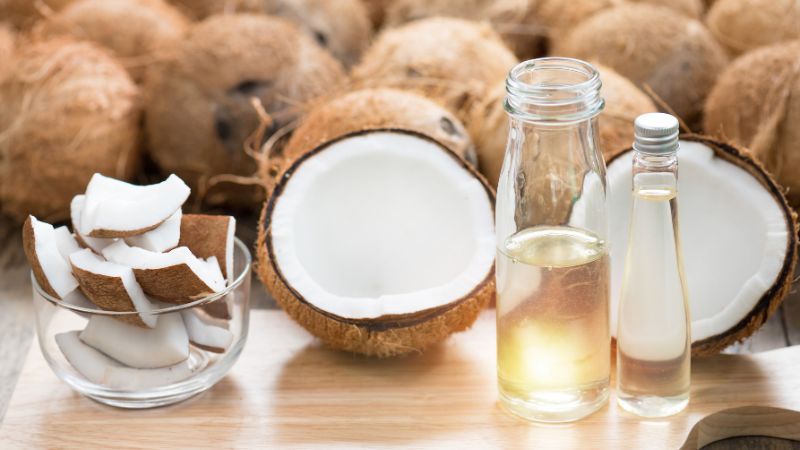 Natural Oils
Natural Oils
Fine Scrubs in Physical Exfoliators
Fine scrubs in physical exfoliators can disrupt the skin’s moisture barrier, making it more sensitive and imbalanced, triggering sebum production, and leading to acne.
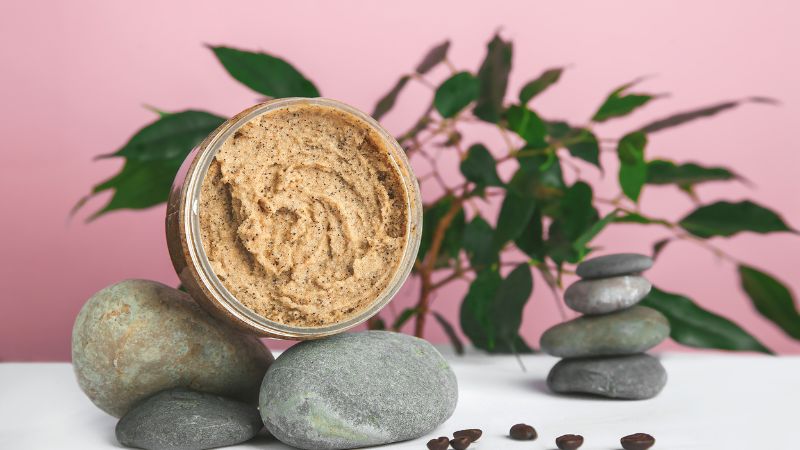 Fine Scrubs in Physical Exfoliators
Fine Scrubs in Physical Exfoliators
Silicone
Common forms of silicone found in cosmetics include dimethicone, cetearyl methicone, and cyclomethicone. These ingredients can clog pores and lead to acne formation.
 Silicone
Silicone
2 Tips for Caring for Acne-Prone Skin
What Should People With Oily, Acne-Prone Skin Avoid?
Here are some things you should not do when caring for acne-prone skin:
- Popping Pimples: While a common practice, popping pimples can make acne worse if not done at the right time and with the proper technique. Using your hands to squeeze pimples increases the risk of infection, prolongs the healing process, and can even leave permanent scars.
- Applying Toothpaste: Although a popular home remedy, the fluoride and whitening agents in toothpaste can irritate the skin and make acne and inflammation worse.
- Using Accessories to Cover Acne: Hiding acne-prone skin under scarves, hats, or hair can make the skin stuffy, increasing the risk of infection and leading to more breakouts.
- Using Aspirin Paste: Aspirin contains salicylic acid, a common acne-fighting ingredient. However, the form of salicylic acid in aspirin is not suitable for topical application and can irritate the skin.
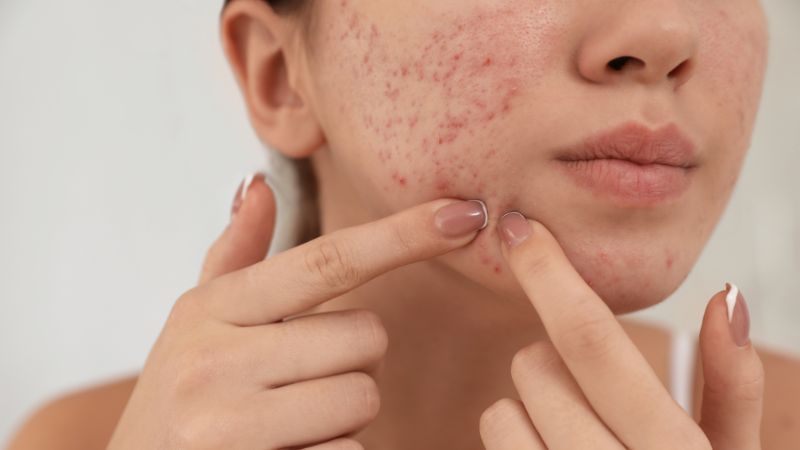 What to Avoid for Acne-Prone Skin
What to Avoid for Acne-Prone Skin
How to Care for Acne-Prone Skin?
Here are some ways to care for acne-prone skin:
- Ice Cubes: Gently applying ice cubes to swollen pimples or acne can help reduce inflammation and pain. However, ensure the ice cubes are clean, and do not apply them for too long to avoid irritating the skin.
- Sulfur-Based Acne Treatments: Products containing sulfur, benzoyl peroxide, or salicylic acid are effective in improving acne-prone skin. However, prolonged use can lead to dryness and irritation, so it is best to use them as directed by a dermatologist.
- Benzoyl Peroxide for Inflammatory Acne: Regular acne treatments may not be effective for large, inflamed pimples. Consult a dermatologist about using antibiotics in combination with benzoyl peroxide for better results.
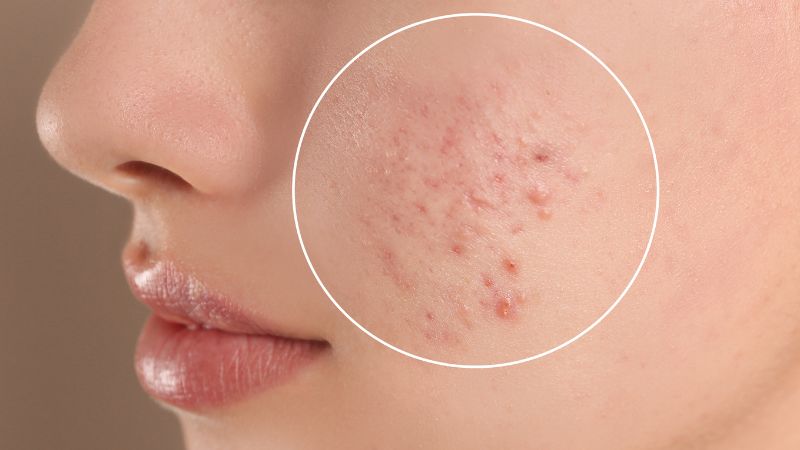 Caring for Acne-Prone Skin
Caring for Acne-Prone Skin
- Gentle Cleansers for Oily Skin: Contrary to popular belief, harsh cleansers are not the solution for oily skin. Instead, opt for gentle cleansers to avoid irritating the skin and triggering more breakouts.
- Additionally, pair your cleanser with a lightweight, oil-free moisturizer to hydrate the skin without adding excess grease.
- Extracting Blackheads or Using Blackhead Removal Medication: Improper skin cleansing can lead to enlarged pores, and the buildup of sebum and dead skin cells can result in blackheads. In such cases, you may need to extract blackheads or use blackhead removal medication, but ensure you do so correctly to prevent infection and scarring.
This article has provided some insights into ingredients to avoid and tips for properly caring for acne-prone skin. We hope you found this information helpful in your journey to achieving healthy, clear skin.
Sources: Songkhonggioihan.com and Medlatec.vn

























